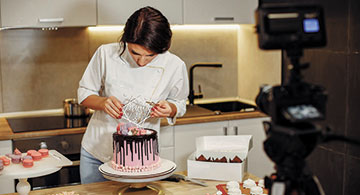 As the years go by, my appreciation for a particular part of my education in the Philippines continues to increase. That is, the practical lasting value and impact of the class we called H.E.L.E. (Home Economics and Livelihood Education). I imagine that different regions and schools had a variation of the acronym, the content of the curriculum itself, as well as the scheduling. As for me, I had these classes from Grade 4 until the final year of high school, and I strongly believe that it sets a good foundation of intellectual, practical, and emotional skills that helps in one’s life as they get older.
As the years go by, my appreciation for a particular part of my education in the Philippines continues to increase. That is, the practical lasting value and impact of the class we called H.E.L.E. (Home Economics and Livelihood Education). I imagine that different regions and schools had a variation of the acronym, the content of the curriculum itself, as well as the scheduling. As for me, I had these classes from Grade 4 until the final year of high school, and I strongly believe that it sets a good foundation of intellectual, practical, and emotional skills that helps in one’s life as they get older.
First, I would like to talk about cooking classes. In my own home growing up I did not have a lot of opportunity and access to make elaborate dishes. I did not have access to a steamer, oven, or baking trays. But in my Home Economics classes, working with a few dozen classmates, we watched and help make delicacies, I had my fist opportunity baking and icing a cake, and used large cooking equipment.
The moment I had my own home, my own kitchen, oven and pantry, I was able to build my skills and routines, from cooking basic dishes, indulging myself with my favourite Filipino foods, and experiment with dishes and learn new recipes. Cooking classes in school was also my first experience cooking with other people and while I appreciate it, it helped me understand who I am a bit better, and how in the kitchen I am an independent worker.
Learning about sewing, both hand-sewing and machine sewing, helped me practically, financially and creatively. I made my first pillowcases in Grade 5. The fabric was a light green fabric decorated with little white flowers, with a bold fuchsia pink ribbon as an accent, and strips of the green fabric as pleated fringes all around the edges. Now in my house, all our pillowcases are crafted by me, with a pattern of bold blocks and stipes, recycled from clothes that are too worn to wear anymore. And now during the pandemic this helps with community service, as I finish the 125th fabric laundry bag I have sewn to help healthcare workers safely store their dirty scrubs and uniforms after work.
I appreciate how these classes tried to bend gender norms as well. Female students had to take woodworking, and it helped build my confidence, to not be scared of tools such as hammers, chisels, nails and screws. It helped me to be caring and diligent about the physical structure of my home and its furnishings. As with community service, it was less intimidating to volunteer Habitat for Humanity a few years ago. I thought, if I can handle a screwdriver or a hammer, it is totally okay to “level up” and learn how to use 3-foot long, powerful nail gun, stapler to install sub-flooring, and build door frames.
In high school, I learned computer skills and the basics of architectural drafting. I can even argue that I had better foundational skills compared to those who grew up here in Canada, particularly with using Excel, PowerPoint, and computer programming. I acknowledge the value of choosing classes that are interesting for a student, however, I am so glad that these were made mandatory.
Many parents are using the pandemic, as their children are homebound with them, as an opportunity to teach life skills like cooking and organizing the home. As an orphan, with a living arrangement different than most, if this were the case in the Philippines where the parents at home is primarily in charge of teaching ‘life skills’ I would have missed out on so many things.
I strongly believe that educational curriculum in schools can become a really valuable equalizer. Children of different backgrounds and circumstances are gathered in the same room, under the same teachers, schedule and access to materials and equipment and ideally, retain the knowledge and skills being taught.


